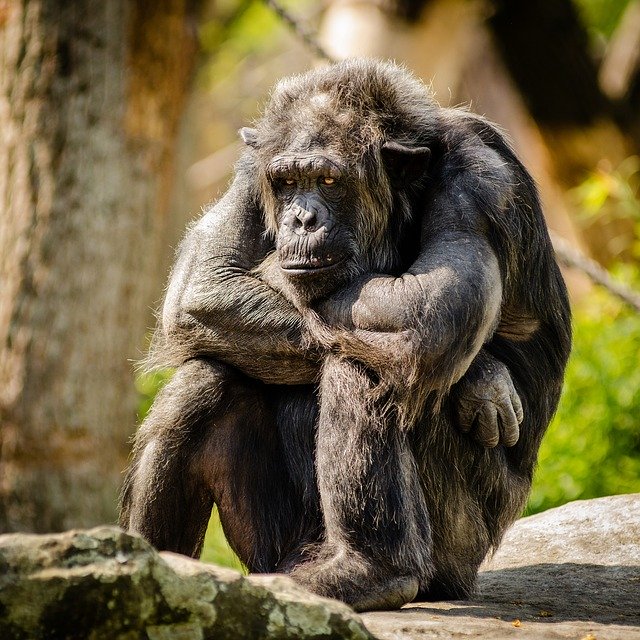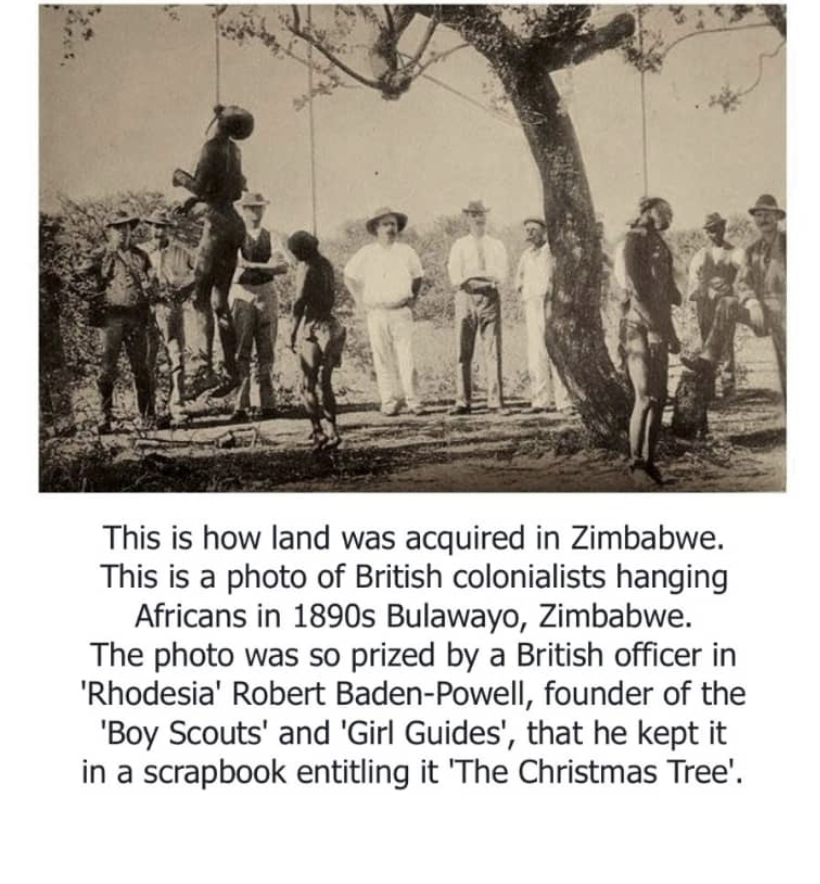Jimbo, Lulu, and Dina were out in the woods behind the street where they lived. It was summer, and very hot, and the shade inside the forest did them good. At first they played hide and seek, but that got boring after a while. The seeker could always hear where the hiders where heading to while he/she counted, making the game too easy for the seeker.
“Let’s hike up to Devil’s Rock!” said Lulu excitedly. The other two looked at each other. Jimbo shrugged.
“I don’t know,” said Dina, “it’s a long way. And what if we get lost? And it’s almost lunchtime…”
“Good!” said Lulu decisively. “Then everyone goes home now and packs something to eat, and not only for yourself, Jimbo…” she glared at him jokingly out of the side of her eye, “then we meet back here in half an hour. And don’t worry, Dina, I’ve been there hundreds of times.”
The other two friends nodded, Dina a little more grudgingly.
A half hour later Lulu was waiting, thinking her friends had forgotten about her. She was already ready after 23 minutes, and it seemed like it took forever for the other two to show. Finally Jimbo showed up.
“Alright, smart boy,” said Lulu commandingly, “let’s see what you have.”
They both looked into Jimbo’s backpack at his store of foods. There were three sandwiches smeared with tunafish so terribly you couldn’t see the bread, two pieces of cold pizza, five chocolate bars, and some potato chips. Lulu said “uh-huh” or “OK” after each. Then she handed Jimbo his backpack. He smiled proudly.
“Now you can go back and get what you forgot,” Lulu said coldly. Jimbo’s smile wilted.
“Why??” he whined. “What’d I forget??”
“It’s summer, Jimbo,” Lulu said. “Remember? Go get yourself some water.”
Jimbo went off, cursing, as Dina showed up. Again Lulu asked to see what she had brought, and again she sent her friend home to get some water. She sat down on a rock, shaking her head, and waited for the others to return.
On the way to Devil’s Rock, they sang some songs and then played tag. It was fun, but the woods were so thick the only place to run away was on the path, which meant the fastest-Lulu-would never get tagged.
Suddenly Lulu froze, crouching down.
The other two looked around nervously. “What?” they whispered, as a smile crept over Lulu’s face.
“Nothing,” she said, laughing. “You should see your faces.”
They shook their heads and looked down while Lulu skipped ahead. Dina and Jimbo caught up to Lulu a few seconds later, and Lulu froze again. “Shhhh!!!” she said.
They both crouched a little and looked about. Suddenly, Lulu took off running as fast as she could. The other two kids didn’t know what to do and took off after her. Being faster, however, Lulu quickly outdistanced them and ran over a little hill in a curve of the path.
Dina and Jimbo reached the curve, where a massive pine tree stood. Lulu jumped out from behind the tree.
“Boooo!” she cried.
Dina shrieked and Jimbo fell into the bushes. Lulu, laughing, helped Jimbo up while Dina laughed nervously. Then she pushed Lulu into the bushes.
This time it was Jimbo and Dina’s turn to run ahead, laughing, until Lulu could catch up.
Finally, they made it to Devil’s Rock. They were all hungry, and spread the food they brought out on the blanket Lulu had brought. They ate and joked and told silly stories, each one funnier than the last. When that got boring they listened to the forest birds chatting away in the treetops, and tried to guess what kind of birds they were.
Once they heard a rustling nearby, and it turned out to be a big snake. Dina was terrified, but Lulu and Jimbo watched the reptile, fascinated.
“It’s more scared of us than we are of him,” said Lulu, watching it disappear under a pile of rocks.
Afterwards, Dina did not feel much like joking, and the children decided to head back. They took a different way, where a stream twisted and babbled its way through the forest. At the water’s edge they saw dozens of frogs, and Jimbo discovered that if they moved slowly, they could see crayfish hiding under or near rocks in the water. Little fish also darted this way and that, and the children even went in to cool off.
It was almost sad to leave the stream and the woods behind them, but they promised each other to repeat the adventure whenever they could the whole summer long.
The weeks passed, and Dina showed up less and less. Whenever she did, she looked…different. She didn’t seem to be as happy as before, and she looked thinner. She had also gotten paler. Jimbo and Lulu asked her if anything was wrong, but she shook her head and said nothing.
Finally the day came where Dina did not show up at all.
“Alright, that settles it,” said Lulu. “No one bails on our friendship. We’re going to her house.”
They both headed over to Dina’s house, where her mother opened the door. She quickly looked back into the house to make sure her daughter wasn’t there, and went outside to talk with Lulu and Jimbo.
“I’m glad you’re here,” she said. “Dina hasn’t been herself these last few weeks. She won’t say what it is, but she’s been this way since you three first went into the woods. All she has been doing since then is surfing the internet. She doesn’t eat and barely sleeps.”
Lulu and Jimbo looked at each other. They both stood up.
“Take us to her room,” said Lulu.
They entered Dina’s room, and Dina’s mother closed the door. The girl was surprised and nervous. Lulu sat down on the bed next to Dina, while Jimbo played with a plastic cow he found.
“Do you know what the ‘www’ stands for, Dina?” Lulu asked her friend.
Dina looked down and nodded.
“There’s a reason they call it the ‘web,’ Dina, and you sure don’t look like a spider,” Lulu went on. “I know you feel safe in there, but why don’t you feel safe with us?”
Dina hung her head.
“It’s not cuz of the snake, is it?” Jimbo asked, looking up from his cow.
Dina nodded.
“Oh, Dina, we have to cure you of that,” Lulu said hugging her friend, “or you’ll never have fun with us in the woods again!”
“C’mon Dina,” added Jimbo. “If you’ll go again, I’ll help you dunk Lulu in the stream.”
It was settled. They went back to the woods and had a wonderful time again. Dina and Jimbo dunked Lulu in stream and even filled her face with mud. They did manage to start coming back regularly, loving it every time, and, one day near the end of summer, Jimbo caught a snake, and Dina even petted it.
It really was more scared of them, and they let it go quickly.
Dina hugged both of her friends. She looked happy and healthy.



